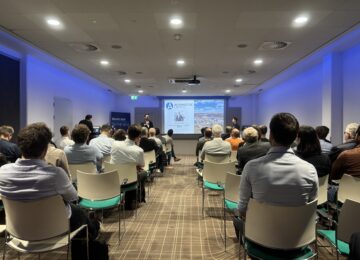Energy Storage NL: The electricity grid is not full
Yesterday TenneT announced that the electricity grid in Limburg and North Brabant is full. There is no room for new connections in these provinces. Both consumers (companies and homes) and producers of renewable energy can no longer be connected. Energy Storage NL, the trade association for the Dutch energy storage sector, is surprised that grid operators are only looking at grid reinforcement as a solution. Efficient solutions are possible in the short term, through energy storage, for example.
What is full?
Energy Storage NL argues that in practice the electricity grid is not full, as grid operators now indicate. The maximum load on the electricity grid is not achieved for most of the year. Only a few times, sometimes only a few hours per year, is there a maximum load on a grid surface, a part of the electricity grid. For these peak moments, energy storage can provide a quick, simple and affordable solution.
Why is energy storage not yet applied?
Grid operators also believe that energy storage is important for grid stability now and in the future. Unfortunately, grid operators themselves prevent the rapid deployment of energy storage and have not yet put any European tenders in the market for energy storage as a solution to bottlenecks. In addition, TenneT recently announced an increase in transmission tariffs for use of the electricity grid. The current tariff distinguishes "producers" and "consumers," and from this history, producers are exempt from this and consumers pay the full bill. Because under current regulations batteries are considered a consumer, which they are not, deploying energy storage in the form of batteries is prohibitively expensive. This prevents the rapid deployment of batteries in the Netherlands.
Encouraging energy storage
Energy Storage NL is calling on grid operators to move quickly to make energy storage more flexible. This can be done by creating a dispensation from the current transmission tariffs for energy storage. The industry association is also looking to The Hague to create the right preconditions. For anyone waiting for a connection, the current methodology is difficult to understand in light of existing technical possibilities and economically damaging.





